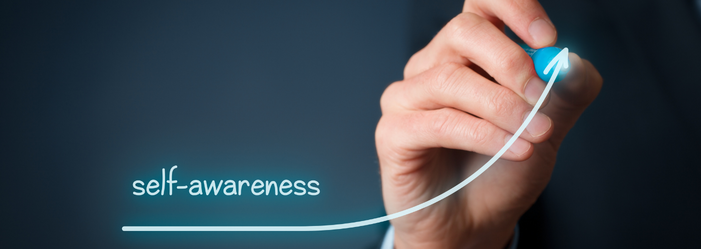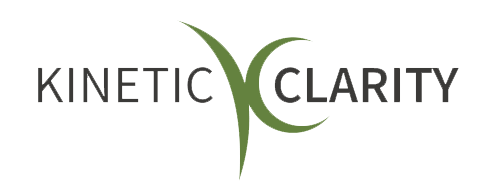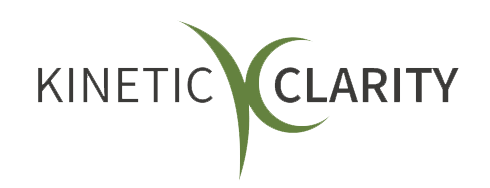Exploring Self-Awareness in the Workplace
Unlock the Power of Perception

Self-awareness is the ability to recognize and understand one's own thoughts, emotions, and behaviors. This is crucial for personal and professional growth, communication, and effective teamwork.
Self-awareness is an essential skill; it enables us to identify our strengths and weaknesses, understand our impact on others, and make necessary improvements. Many of us are inclined to say that we’re self-aware, but very few of us actually are. One study determined that only 10-15% of employees actually have a good sense of themselves. The good news is that self-awareness is similar to a muscle; you can develop it if you work at it.
But first, it helps to know what you’re working toward and why.
Why is Self-Awareness Important in the Workplace?
There are several reasons that self-awareness is vital in the workplace. It’s an essential component of emotional intelligence, which is critical for working collaboratively, making good decisions, and handling stress healthily.
Play to Your Strengths
Self-awareness allows individuals to recognize their strengths and weaknesses, enabling them to focus on areas where they need to improve. Even when people are good at something, they can still work on further developing their strengths; they may find that’s the path for career development.
And, of course, improving weak spots is vital, so they don’t hold you back. Being aware of the areas you need to work on is a significant stride toward making a change.
Be a Better Communicator
Being skilled at honest self-assessment helps individuals to develop more effective communication skills by understanding how their words and actions can impact others. For example, we’ve all been in a position where we’ve accidentally said something stupid; this can have terrible implications when it happens at work. So rather than getting in hot water for saying something inappropriate, a self-aware person can reign in their not-suitable-for work-comments.
Exercise Personal Development
Self-awareness helps individuals to develop a growth mindset, enabling them to learn from their mistakes and failures. When an employee is skilled at analyzing themself, they are more likely better understand how to move forward after a disappointment. As a result, they’re less likely to let a setback derail them.
Become a Team Player
Finally, it enables individuals to develop greater empathy and understanding of others, resulting in improved collaboration and teamwork. It’s often easier to work with people you feel connected with.
When an individual is mindful of how their words and actions affect others, they’re more likely to shape their interactions with teammates so that they relate to each other. Research has shown that self-awareness gives people the skill to encourage a strong sense of teamwork.
Different Types and Levels of Self-Awareness
There are several different types and levels of self-awareness. If you understand the differences between these types of awareness, you’ll have an easier time advancing your self-awareness journey.
The three main types of self-awareness are:
- Emotional self-awareness: The ability to recognize and understand one's own emotions.
- Behavioral self-awareness: The ability to recognize and understand one's own behavior and how it impacts others.
- Cognitive self-awareness: The ability to recognize and understand one's own thought patterns and beliefs.
The four levels of self-awareness are:
- Level 1:
Unawareness: Individuals are not aware of their behavior, emotions, or thoughts. They don’t recognize the impact of their thoughts on their actions or how their actions affect their co-workers.
- Level 2:
Awareness: Individuals become aware of their behavior, emotions, or thoughts through feedback from others or self-reflection. This is an essential step in expanding self-awareness. The individual can trace how specific incidents relate directly to how they behaved or spoke.
- Level 3:
Understanding: Individuals understand the impact of their behavior, emotions, or thoughts on themselves and others. In the moment, the individual can immediately gauge what their words will likely result in.
- Level 4: Mastery: Individuals are able to manage their behavior, emotions, or thoughts effectively and use them to achieve their goals. This is the ultimate in self-awareness.
How Coaching Can Help Improve Self-awareness
We aren’t all born with the natural gift of self-reflection. Some individuals could go through their whole lives without ever analyzing themselves; however, those people aren’t likely to advance far. Instead, they likely get in their own way.
However, no matter what level of self-awareness we have, we can learn to be better. With some help and dedication, people are capable of becoming excellent at introspection.
Coaching is an effective way to help individuals develop self-awareness in the workplace. A coach helps individuals reflect on their behaviors, beliefs, and values and identify areas where they can improve.
Kinetic Clarity offers an incredibly effective program for business leaders to enhance their leadership skills.
Dare to Lead, by Brene Brown, is based on the principles of vulnerability, empathy, and courage. It focuses on helping individuals develop self-awareness, self-regulation, and social awareness, enabling them to become more effective leaders. Business leaders who’ve completed the Dare to Lead workshop tap into their courage and learn to be brave business leaders.
Contact us to schedule your seat in our next cohort.
Wrapping It Up
Self-awareness is an essential skill for personal and professional growth in the workplace. Coaching programs like Dare to Lead by Brene Brown can help individuals develop self-awareness, self-regulation, and social awareness, enabling them to become more effective leaders. Understanding the different types and levels of self-awareness can also help individuals to recognize their strengths and weaknesses, improve their communication skills, and become more empathetic and understanding toward others.












